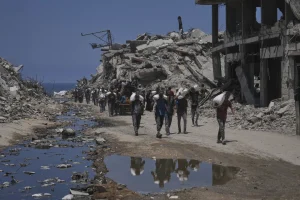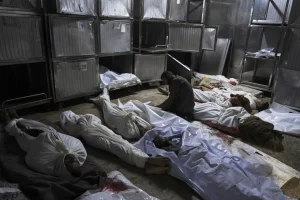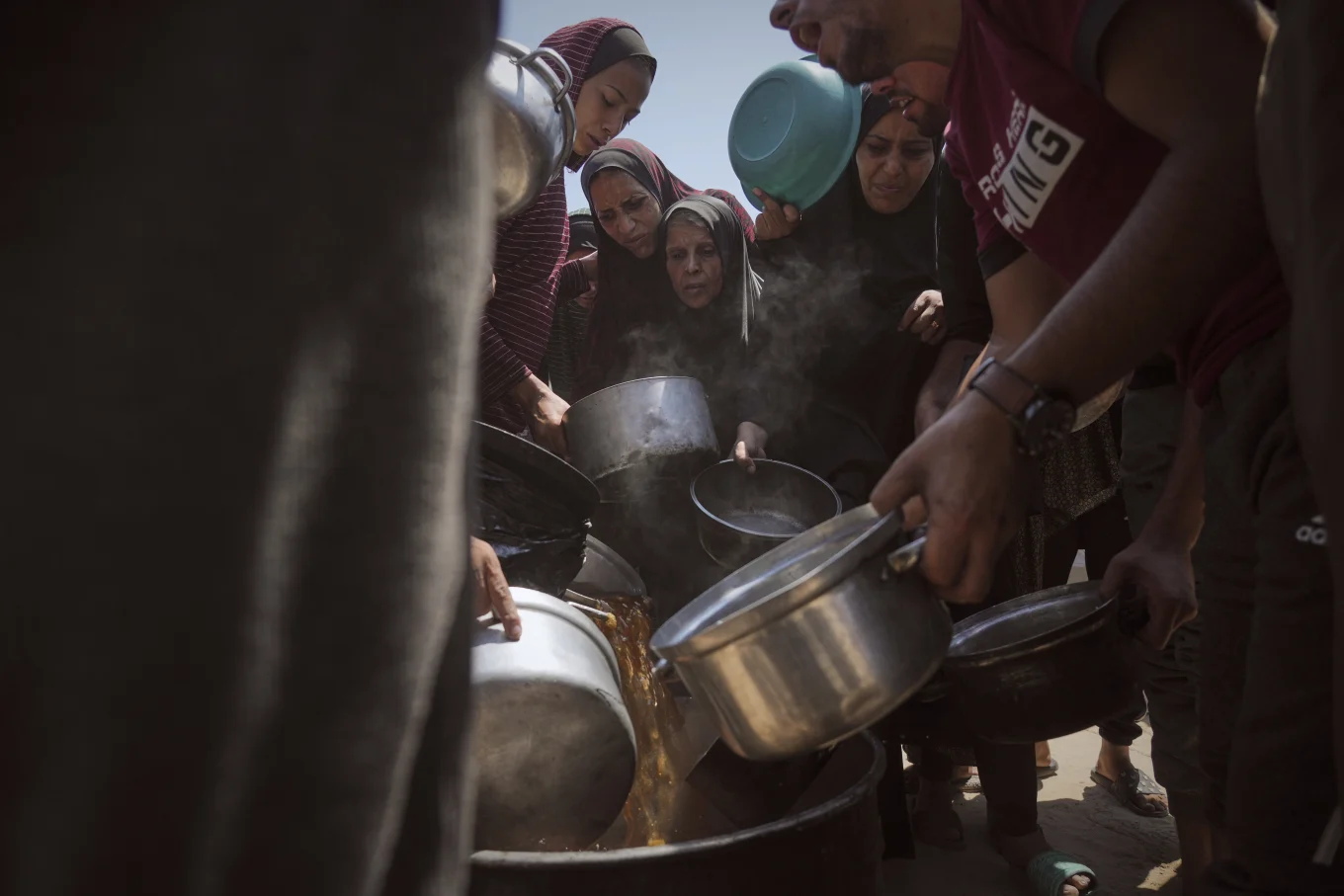More than 100 charity and human rights groups said Wednesday that Israel’s blockade and ongoing military offensive are pushing Palestinians in the Gaza Strip toward starvation, as Israeli strikes killed another 21 people overnight.
Meanwhile, the Trump administration’s Mideast envoy, Steve Witkoff, was set to meet with a senior Israeli official about ceasefire talks, a sign that lower-level negotiations that have dragged on for weeks could be approaching a breakthrough.
Experts say Gaza is at risk of famine because of Israel’s blockade and offensive. The head of the World Health Organization said Gaza is “witnessing a deadly surge” in malnutrition and related diseases, and that a “large proportion” of its roughly 2 million people are starving.
Israel says it allows enough aid into the territory and faults delivery efforts by UN agencies, which say they are hindered by Israeli restrictions and the breakdown of security.

In an open letter, 115 organisations, including major international aid groups such as Doctors Without Borders, Mercy Corps and Save the Children, said they were watching their own colleagues, as well as the Palestinians they serve, “waste away.”
The letter blamed Israeli restrictions and “massacres” at aid distribution points. Witnesses, health officials and the UN human rights office say Israeli forces have repeatedly fired on crowds seeking aid, killing more than 1,000 people. Israel says its forces have only fired warning shots and that the death toll is exaggerated.
The Israeli government’s “restrictions, delays, and fragmentation under its total siege have created chaos, starvation, and death,” the letter said.
WHO Director Tedros Adhanom Ghebreyesus echoed that criticism, telling reporters that acute malnutrition centers in Gaza are full of patients and lack adequate supplies. He said rates of acute malnutrition exceed 10% and that among pregnant and breastfeeding women, more than 20% are malnourished, often severely.
The UN health agency’s representative in the occupied Palestinian territories, Dr Rik Peeperkorn, said there were more than 30,000 children under 5 with acute malnutrition in Gaza and that the WHO had reports that at least 21 children under 5 have died so far this year.

The Israeli Foreign Ministry rejected the criticism in the open letter and accused the groups of “echoing Hamas’ propaganda.” It said it has allowed around 4,500 aid trucks into Gaza since lifting a complete blockade in May, and that more than 700 are waiting to be picked up and distributed by the UN.
That’s an average of around 70 trucks a day, the lowest rate of the war and far below the 500 to 600 trucks a day the UN says are needed, and which entered during a six-week ceasefire earlier this year.
The UN says it has struggled to deliver aid inside Gaza because of Israeli military restrictions, ongoing fighting and a breakdown of law and order. An alternative system established by Israel and an American contractor – the Gaza Humanitarian Foundation – has been marred by violence and controversy.


